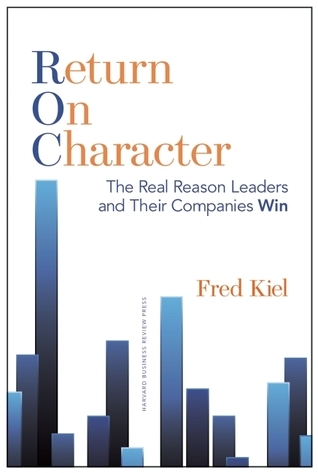This is one of those landmark books you occasionally encounter. It is a bit like an iceberg, most of its power and mass is hidden from view, yet you soon feel its impact!
The author presents the findings of a major study conducted into seeing what makes (or breaks) really top-flight leaders in American companies. It is not the lightest of reads but it is a very informative and fascinating academically rigorous deep-dive. The research has sought to examine the interconnected world of character, leadership excellence and organisational results, taking direct evidence from over one hundred CEOs as well as interviewing nearly 9,000 employees to gauge their own reactions and valuations.
Being a strong, confident, considerate leader has its benefits, especially on the company’s bottom line. The good news is that even poorly performing, weaker leaders can transform and transition into a stronger, higher performing character. It is just that they must accept the need and endure a possibly rigorous series of procedures.
The author pulls no punches, starting the book with this fairly stern yet valid paragraph: “Just seeing the words character and business leadership in the same sentence brings to mind a seemingly unending list of ineffective leaders who periodically sweep through the business world, draining organisations of all real value, leaving nothing behind but angry investors and an unemployed workforce. These “greed is good” proponents can make for great headlines, but that's where their contribution to any common good ends. When it comes to running a business that achieves maximum returns for all stakeholders - investors, governing boards, employees, clients, communities, and the world they share - self-involved, bottom-line-driven leaders rarely deliver the goods.”
This reviewer can identify many so-called top leaders who are in fact rather ineffectual and a corrosive effect on their enterprise. The cream does not always rise to the top… These leaders might be skilled in some things, yet they lack the all-round, credible, quality leadership skills that can really set an enterprise alight with creativity, vitality, profitability and a determined, loyal workforce. This is not a “how to be a great leader in one day”-type of book. It is a detailed, focussed, considerate examination of a very serious subject. It is the sort of book that a weak, ineffective leader probably won’t read, after all they know everything don’t they and they have the title to evidence their success. The rest of us, whether regular workers, aspiring leaders or even true, confident and real company leaders will find a lot of actionable and gripping information. It will be a heavy read but the outcome is worth it.
One hopes that the publishers will make a simpler, accessible version of this book in due course, allowing the message be spread to as wide an audience as possible. It might even start to have an impact on those who really do need to change their habits…. One can dream, can’t one?
Return on Character, written by Fred Kiel and published by Harvard Business Review Press. ISBN 9781625271303, 272 pages. YYYYY

